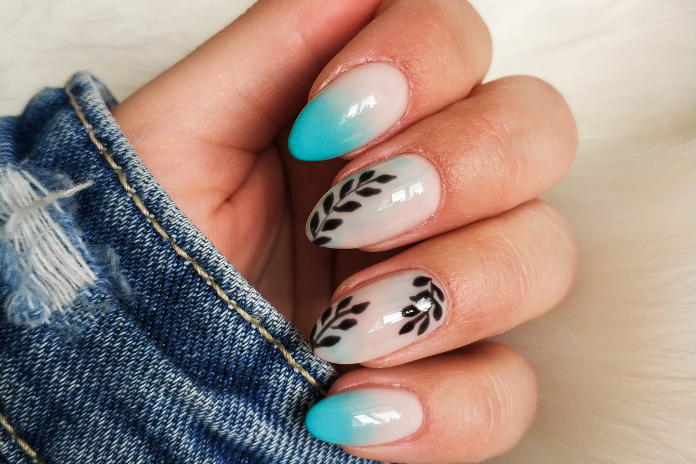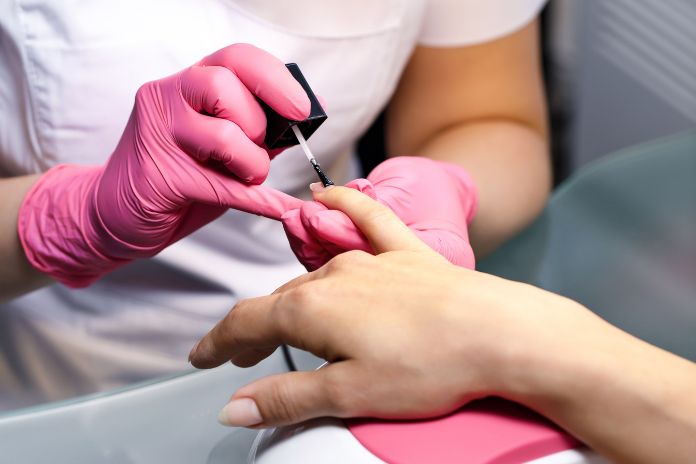Wearing acrylic nails has become a popular trend in recent years, with many people opting for this type of nail enhancement for various occasions. However, when it comes to surgery, there are concerns about whether or not acrylic nails can be worn during the procedure. As a team of medical professionals, we understand the importance of addressing such concerns and providing accurate information to our patients.
Firstly, it is important to note that acrylic nails are not recommended during surgery. This is because they can harbor bacteria and other microorganisms, which can increase the risk of infection. Additionally, acrylic nails can interfere with the accuracy of pulse oximetry readings, which are used to monitor a patient’s oxygen levels during surgery. Therefore, it is recommended that patients remove their acrylic nails before undergoing any surgical procedure.
In conclusion, while acrylic nails may be a fashionable accessory for everyday wear, they are not suitable for surgery. As a medical team, it is our duty to ensure the safety and well-being of our patients, and we strongly advise against wearing acrylic nails during any surgical procedure.
Wearing Acrylic Nails During Surgery
Preparing for Surgery
When preparing for surgery, it is important to consider the impact of acrylic nails on the procedure. We recommend that patients remove their acrylic nails before surgery to reduce the risk of infection. Acrylic nails can trap bacteria and other microorganisms, which can be harmful during surgery.
In addition, acrylic nails can interfere with the accuracy of pulse oximetry readings, which measure the oxygen levels in the blood. This can lead to inaccurate readings and potentially dangerous complications during surgery.
Surgery Day
On the day of surgery, it is important to arrive at the hospital with clean, bare nails. We recommend that patients avoid wearing nail polish or any other nail products, as these can also trap bacteria and interfere with pulse oximetry readings.
If a patient insists on wearing acrylic nails, we may ask them to remove them before surgery. In some cases, we may be able to tape the nails down to reduce the risk of them coming off during the procedure.
Recovery
After surgery, it is important to keep the surgical site clean and free from infection. We recommend that patients avoid wearing acrylic nails or nail polish until the surgical site has fully healed.
In addition, it is important to avoid wearing jewelry, dentures, contact lenses, and glasses during surgery to reduce the risk of complications. Patients should also avoid using lotion, ointments, and hair products on the day of surgery, as these can interfere with the accuracy of pulse oximetry readings.
Overall, while it may be tempting to wear acrylic nails during surgery, we strongly recommend against it. By following these guidelines, patients can help ensure a safe and successful surgical procedure.
Potential Risks and Complications
Pulse Oximeter
When wearing acrylic nails during surgery, there is a risk that the pulse oximeter may not be able to accurately measure the oxygen saturation level in the blood. This is because the acrylic nails can interfere with the light sensor on the pulse oximeter, which reads the oxygen saturation level. If the pulse oximeter is unable to obtain an accurate reading, it may cause the medical team to believe that the patient’s oxygen levels are lower than they actually are, which could lead to unnecessary interventions.
Blood Pressure
Another potential risk of wearing acrylic nails during surgery is the inaccurate measurement of blood pressure. The cuff used to measure blood pressure may not fit properly over the acrylic nails, which could lead to a falsely elevated or decreased reading. This could result in incorrect diagnoses or treatments, which could have serious consequences for the patient.
Oxygen Levels
In addition to the pulse oximeter, the oxygen levels in the blood may also be affected by wearing acrylic nails during surgery. The acrylic nails can interfere with the accuracy of the pulse oximeter, which may lead to an incorrect measurement of oxygen saturation levels. This could result in unnecessary interventions or treatments, which could be harmful to the patient.
It is important to note that these potential risks and complications are not limited to acrylic nails. Other types of artificial nails, such as gel or dip powder nails, may also interfere with medical equipment during surgery. Therefore, it is recommended that patients avoid wearing any type of artificial nails during surgery to ensure the accuracy of medical equipment and to prevent potential harm to the patient.
Consulting with Your Doctor
When considering whether or not to wear acrylic nails during surgery, it is important to consult with your doctor. We recommend having an open and honest conversation with your doctor about your concerns and any potential risks associated with wearing acrylic nails during surgery.
During your consultation, your doctor may ask you questions about your medical history and the type of surgery you will be undergoing. It is important to answer these questions truthfully and to the best of your ability. This will help your doctor make an informed decision about whether or not it is safe for you to wear acrylic nails during surgery.
Your doctor may also provide you with information about the hospital or surgical center’s policies regarding acrylic nails. Some hospitals may have strict policies prohibiting the wearing of acrylic nails during surgery, while others may allow it under certain conditions.
If your doctor determines that it is safe for you to wear acrylic nails during surgery, they may provide you with specific instructions on how to prepare your nails. This may include removing any nail polish or decorations and thoroughly cleaning your nails before the surgery.
It is important to remember that every surgery and every patient is unique. What may be safe for one patient may not be safe for another. Ultimately, the decision about whether or not to wear acrylic nails during surgery should be made in consultation with your doctor, taking into account your individual health history and the specific details of your surgery.
Conclusion
After conducting thorough research and analysis, we have come to the conclusion that wearing acrylic nails during surgery is not recommended. While there are no specific regulations prohibiting the use of acrylic nails in the operating room, there are several factors that make it a risky practice.
Firstly, acrylic nails can harbor harmful bacteria and germs, which can potentially lead to infections in both the patient and the surgical team. This is especially concerning given the high-risk nature of surgical procedures.
Furthermore, acrylic nails can also interfere with the accuracy of medical equipment, such as pulse oximeters and probes, which are used to monitor vital signs during surgery. This can lead to inaccurate readings and potentially compromise patient safety.
Additionally, acrylic nails can break or chip during surgery, potentially contaminating the sterile field and compromising the integrity of the procedure.
In conclusion, while acrylic nails may be fashionable and aesthetically pleasing, they should not be worn during surgery. It is important to prioritize patient safety and adhere to strict hygiene protocols in the operating room.

